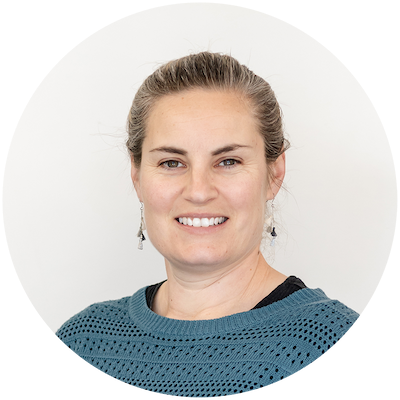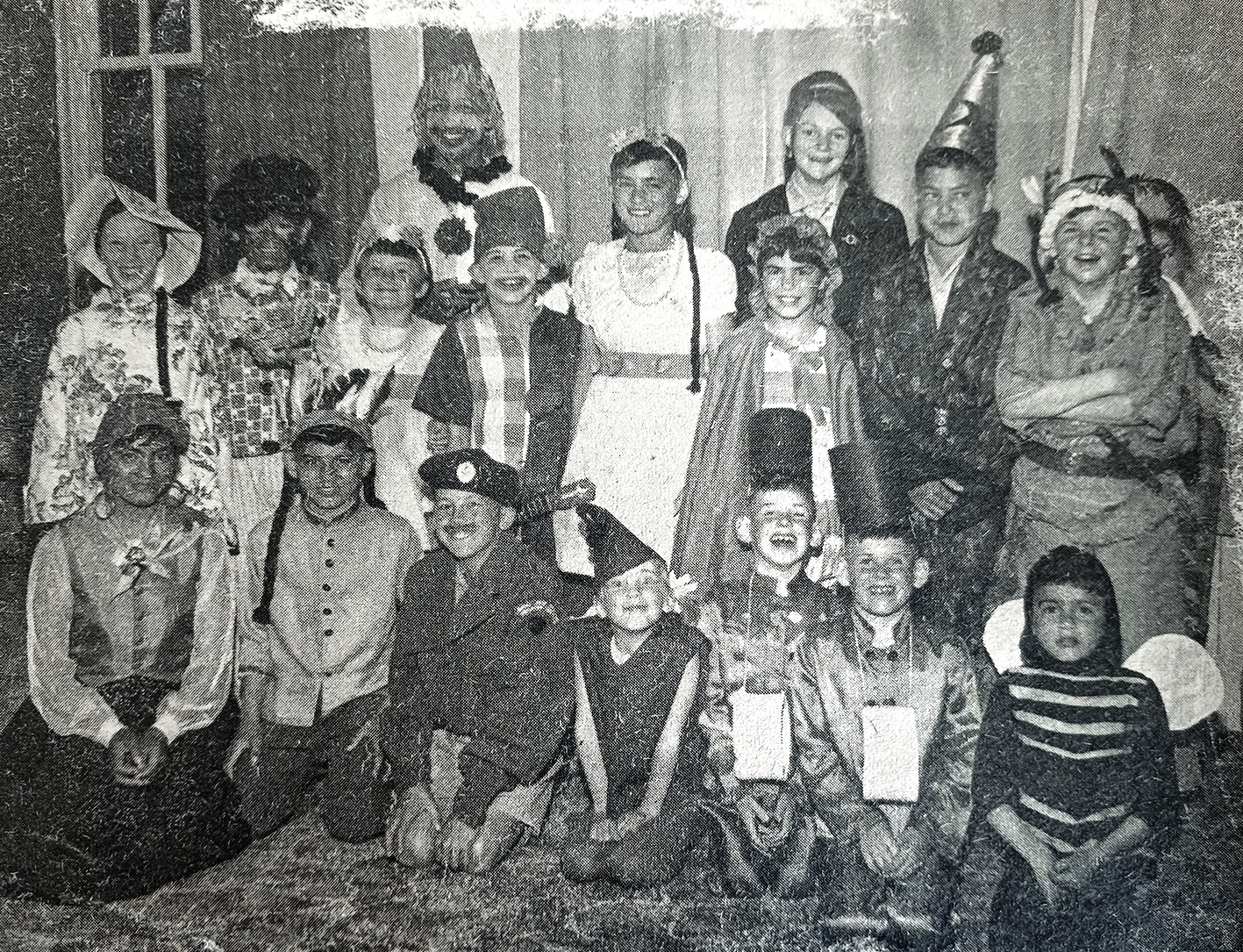‘I was lucky that I had good people to look after me’


Mike Compton (middle row, fourth from left) is pictured in about 1970 with some of the other residents of the Whakarewa Children’s Home, a facility that enabled him a relatively safe and supported childhood. The children were performing as part of the Motueka South School folk dance display. Photo: Supplied.
It is a rather unexpected and heart-warming development that an orphanage should prove to be the gateway to gathering families in so many forms.
This is indeed how life developed for 64-year-old Mike Compton, who spent seven years in the Whakarewa Children’s Home, located at the end of College St towards the Motueka Valley.
The home was a facility – and for many, a haven – that housed and cared for orphans and children from adverse conditions.
Mike’s assembled family includes not only the 20-odd children who resided at any one time in the home alongside him, but also local churchgoers, a loving foster family, and an unravelling list of half-siblings whom he has discovered later in life.
The Motueka local is a long-time Talleys employee and retired deputy fire chief with the Motueka Fire Brigade.
He attended a recent ceremony farewelling the home, which had sat disused for many years and is now being deconstructed by the Ngāti Rārua and Te Ātiawa iwi who own and administer the land.
Mike, the second of four children, was placed at the home in 1967, at seven years old.
His older brother and younger sister went with him, while their youngest sister was not yet five and was sent to a different facility in Nelson.
His parents had their demons and their relationship had been fraught with alcoholism and abuse.
Although the children ended up in their father’s care for a time, it wasn’t a good situation for them, and “people could see that he wasn’t coping very well”, Mike says.

The orphanage offered the children three meals a day and a safe environment.
“We got looked after, to a certain extent,” Mike says – at least, he added, a lot better than their father could have done.
When the children were small, they slept in a dormitory with their own cubicles, graduating to their own rooms as they grew.
They woke early and did the chores that were laid out on a roster.
Then they caught the bus to school – Motueka South School for the younger ones, and Motueka High School for the older – and did more chores and a decent stint of homework after school. There was also plenty of time for play.
Mike says the children were lucky to have a swimming pool, a gymnasium, a woodworking department, a library, and a tennis court all on-site.
“And we had the farm and hills around us.”
They would spend hours making huts down at the river, or building sleds for the hills, or crafting slingshots.
Mike reckons that no ceramic power-pole coupling was safe from the careful aim of their shanghais.
Although there were the usual sibling ructions, the Whakarewa children were a tight unit and looked after each other, Mike says.
“If you ever had a fight at school with one of the home kids, you took on the whole home.”
The establishment had staff – a cook, cleaners, and the master and matron - Mr and Mrs Christianson when Mike and his siblings arrived, a kind couple who Mike remembers fondly.
After Sunday’s church sessions, the children would spend time with families of the congregation. Mike is still in contact with the Baker family, who would host him regularly.
During many school holidays, Mike and the other children were sent to stay with local families, and Mike was often billeted to the Saul family in Blenheim.
He considers them as his foster family, referencing the parents as “Mum and Dad” and their four children as his siblings.
“They treated me like a family member,” he says.
His birth mother disappeared for a while when he went into the home – “we didn’t know if she’d died, nothing” – and reappeared in his life when he was 14.
Mike’s sisters, by then both in the Whakarewa Home, were returned to her care in Wairau, but Mike was doing well at high school and wished to stay in Motueka.
He left the home and lived with his Motueka-based father for a year before moving to a bach on a farm at 15, to work for the Trewavas family, whose kindness has stayed with him.
“I was lucky that I had good people to look after me.”
After seven years there, he moved on to Talleys and says that he is grateful for the support they have given him in the decades since.
Long suspecting that there was something that marked him as different from his brother and sisters, Mike has in recent years done DNA tests that led to the discovery that he has a different biological father – a revelation that comes with more family connections for him and another set of aunts and uncles for his four children.
Mike’s memories of the Whakarewa Children’s Home are not all positive – the punishments for naughty behaviour were harsh, and many of the children had come from bad situations which left them with trauma and anxiety, conditions that back then were not well understood.
However, he is grateful that it was the path that was available to himself and his siblings.
“Thank goodness we ended up in the home when we did,” Mike says.
